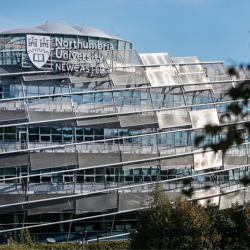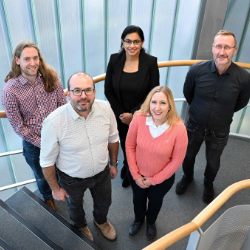Royal Honour as leading researcher awarded Polar Medal
Professor John Woodward has been awarded The Polar Medal in recognition of his outstanding…
International
Northumbria’s global footprint touches every continent across the world, through our global partnerships across 17 institutions in 10 countries, to our 277,000 strong alumni community and 150 recruitment partners – we prepare our students for the challenges of tomorrow. Discover more about how to join Northumbria’s global family or our partnerships.
View our Global FootprintBusiness
The world is changing faster than ever before. The future is there to be won by organisations who find ways to turn today's possibilities into tomorrows competitive edge. In a connected world, collaboration can be the key to success.
More on our Business ServicesResearch
Northumbria is a research-rich, business-focused, professional university with a global reputation for academic quality. We conduct ground-breaking research that is responsive to the science & technology, health & well being, economic and social and arts & cultural needs for the communities
Discover more about our ResearchAlumni
Northumbria University is renowned for the calibre of its business-ready graduates. Our alumni network has over 253,000 graduates based in 178 countries worldwide in a range of sectors, our alumni are making a real impact on the world.
Our Alumni/404 cannot be found.
Please use the form below to report the broken link.

Professor John Woodward has been awarded The Polar Medal in recognition of his outstanding…

Researchers have published the findings of a ground-breaking study which brought together victim-survivors…
.png?modified=20251222122622)
A Northumbria University research project has been highly commended at the 2025 Green Gown…

Northumbria University has been rated as ‘1st class’ for sustainability and is once again the…

A Northumbria University academic is leading pioneering training to support police forces across…

Northumbria University has launched the Hopeful Futures AI Challenge, a groundbreaking national…

Following the success of a Law in the Community project, Northumbria University is expanding…

The North East Space Communications Accelerator (NESCA) has successfully awarded its first…

City Campus East, Northumbria University CCE1-403
-

Virtual Workshop
-

Northumbria University

Northumbria University
-